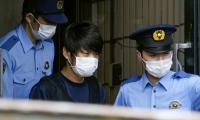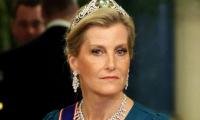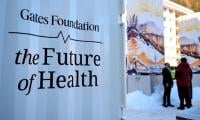What ails democracy?
World Democracy Day fell on September 15 and was celebrated here in Pakistan as well as the world over. Though not very public or at the grassroots levels, events related to the day were held across Pakistan. The National Assembly of Pakistan, a symbolic representation of what went right and wrong with democracy, celebrated the day with an international conference.
Well beyond the celebrations, the day was marked by another day of misery for the flood affected, for families of the missing, and for a politics being conducted by the unelected – all a sad reminder of the democratic dream gone sour.
So how does one assess the state of democracy in Pakistan in the year 2022? Contrary to what elite Pakistanis sometimes believe, the average Pakistani supports (around 57 per cent of them) democracy over other forms of government. The number has fluctuated over the years but has been more than 50 per cent for a decade now and has withstood the gloom caused by many political governments’ perceived and real failure of being able to deliver. Another survey shows that a sweeping 80 per cent Pakistanis feel that democracy is important for Pakistan.
Beyond just the slogan of ‘jamhooriat’, people assess the quality of democracy high too in large numbers: in a 2022 survey by the Democracy Perception Index, 88 per cent feel that there is freedom of speech in the country, 79 per cent feel that elections are generally fair and 74 per cent feel that there is general equal treatment of all segments of society. Moreover, there is a rising legitimacy of civilian rights and ability to govern in Gallup surveys across the decade. In 2010, 46 per cent Pakistanis felt that civilians could govern the country; in 2022, the number is around 60 per cent – it had reached as high as 70 per cent in 2018.
Another good indicator of the rising trust in the democratic system is that voters are increasingly turning out to vote in elections. The 2018 election saw a turnout of 50 per cent, five per cent higher than the historic average of the earlier nine elections in Pakistan according to data compiled by Gallup Election Big Data Analytics Service. The turnout in 1997 (2.5 decades ago) was 37 per cent and it rose to 53 per cent in 2013. The turnout for segments who are usually not passionate voters has also been rising in most of the country, including women, urban men and the youth. In other words, despite all the trouble and the lacklustre performance of civilian institutions – especially politicians – the realization that democracy despite its flaws is better than other systems is holding sway in Pakistan.
What are the threats to democracy in Pakistan? To me the real deep-rooted issue with democracy is not just a Pakistani issue. Globally too, democracy is under threat and is increasingly seen to be not delivering on its promise of representing the will of the people. In a Gallup International survey, majorities in almost 50 countries – including in western Europe and North America – feel that their countries are not run by the will of the people, implying that the will of the powerful (whether economic or military or judicial power) holds more say than that of a regular citizen.
The rise of populism is a manifestation of this fading trust in democracy in areas from where the concept itself originated. In other words, the democracy deficit in Pakistan is not just a Pakistani problem and therefore the solution would also be in a collective global struggle to understand what ails democracy.
Second, to me, the largest threat to democracy in Pakistan is from democrats themselves. For the past 75 years, democratic forces have worked to run democracy in Pakistan (for whatever brief period they got to rule) among a small coterie of either family structures or at best ethnic and regional modern or primordial tribes. There is a reason why all the successful local governments in the country were set up not by democratic forces but by military governments. The quality of democracy is dependent on its size. Without devolving power and making it open to all and sundry, the structures of popular and mass democracy will die their own death – an unfortunate process happening in Pakistan at a fast pace.
Third, the elite in Pakistan have an antagonistic relationship with democracy for understandable but unfortunate reasons. Democracy gives (or assumes to give) power to the masses as opposed to a select few. The backlash of the select few (who are usually the elite) to the power of the people is therefore not unexpected. The elite of all kinds look for an opportunity to ensure power to the people is circumvented through mediation. There is an innate distrust and sometimes outright prejudice against less privileged voters, reminding us of colonial masters who also thought that brown men and women needed to be first educated to become worthy of democracy.
Polling data suggests that military coups, extrajudicial actions, and lack of trust in politics, democracy, and liberal values find more support among the elite in Pakistan. Given the significantly higher share of power and resources the elite hold in the country, it is no surprise that their wishes have led to democracy withering in major ways. Many see some state institutions as threats in themselves to democratic institutions. I believe that these institutions can represent the wishes of the elite in the most prudent manner and therefore we need to address the elite opposition to democracy first – institutional backlash would fall into its place as a result.
Lastly, for democracy to be successful there needs to be a reasonable level of cooperation among the democratic actors, especially on establishing red lines with respect to the democratic system. In the US, the attack on Capitol Hill was a red line crossed by former US president Trump and there was backlash from the political class despite possible popular support for the anti-system activity. Without such unsaid conventional consensus among political actors, the enemies of democracy will always have a field day as they have had for 75 years in Pakistan.
The Charter of Democracy was one such document bringing all political parties on one page on rules of the game within the constitution. Events unfolding since 2016 (dharna politics by the PTI and the PDM VONC) however show a clear reversal of such convention and norm setting; therefore, the political headwinds have been rocking the political structure in a major way.
A democratic Pakistan is the only way forward. To me, the signs are positive that we will eventually pass through the tempests and reach dry ground one day! However, the struggle to achieve that dream needs a more honest and competent leadership, which we hope we can find soon.
The writer is a political science student with a degree from SOAS, London.
-
 Prince Harry Receives Praises For Exposing Dark Side Of British Tabloids
Prince Harry Receives Praises For Exposing Dark Side Of British Tabloids -
 Andrew Forces Beatrice, Eugenie To Lose $60 Million Safety Net Saved For Retirement
Andrew Forces Beatrice, Eugenie To Lose $60 Million Safety Net Saved For Retirement -
 Nvidia CEO Jensen Huang To Visit China To Push Re-entry Into AI Chip Market
Nvidia CEO Jensen Huang To Visit China To Push Re-entry Into AI Chip Market -
 U.S. On Verge Of Losing Measles-free Title Due To Outbreak
U.S. On Verge Of Losing Measles-free Title Due To Outbreak -
 Harry Styles Excites Fans As He Announces Release Date Of New Song
Harry Styles Excites Fans As He Announces Release Date Of New Song -
 Japan’s Ex-PM Shinzo Abe’s Killer Is Set To Be Sentenced: How Much Punishment Could He Face?
Japan’s Ex-PM Shinzo Abe’s Killer Is Set To Be Sentenced: How Much Punishment Could He Face? -
 Prince Harry, Meghan Markle’s Return To UK Could Create Royal Family Dilemma
Prince Harry, Meghan Markle’s Return To UK Could Create Royal Family Dilemma -
 Prince Harry Turns Troubled With No Sense Of Home: ‘Isolation Is Getting To Him Mentally’
Prince Harry Turns Troubled With No Sense Of Home: ‘Isolation Is Getting To Him Mentally’ -
 Vitamin D Link To Respiratory Diseases Will Shock You
Vitamin D Link To Respiratory Diseases Will Shock You -
 A$AP Rocky Gives His Take On Children's Budding Personalities
A$AP Rocky Gives His Take On Children's Budding Personalities -
 Elijah Wood On Return To 'Lord Of The Rings' Universe
Elijah Wood On Return To 'Lord Of The Rings' Universe -
 Princess Beatrice, Eugenie Resort To Begging Sarah Ferguson: 'It'll Bring Disaster For The Whole Family'
Princess Beatrice, Eugenie Resort To Begging Sarah Ferguson: 'It'll Bring Disaster For The Whole Family' -
 Jenny Slate Hails Blake Lively Amid Lawsuit Against Justin Baldoni
Jenny Slate Hails Blake Lively Amid Lawsuit Against Justin Baldoni -
 Sophie Wessex Shares 'frustration' From Early Days In Royal Family
Sophie Wessex Shares 'frustration' From Early Days In Royal Family -
 Jason Momoa's Aquaman Unseen Snap Revealed
Jason Momoa's Aquaman Unseen Snap Revealed -
 Prince Harry Taught Only Way King Charles 'will Take Him Seriously'
Prince Harry Taught Only Way King Charles 'will Take Him Seriously'



